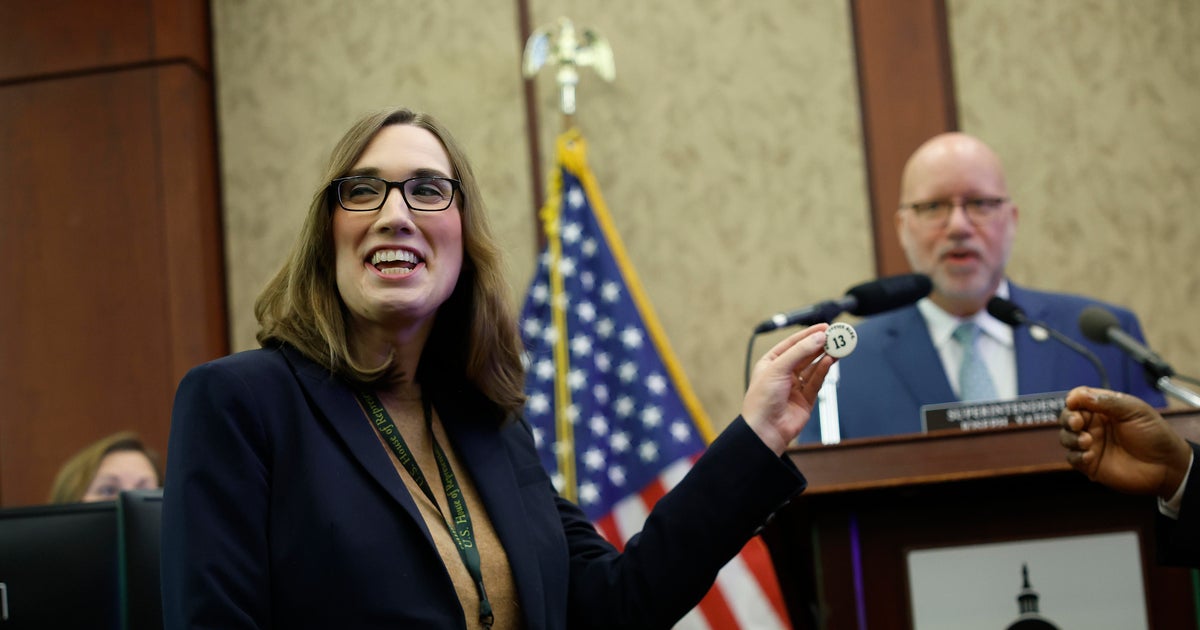What's it like to live in a place where abortion is a crime? Women in Northern Ireland know
Belfast, Northern Ireland — Women in Northern Ireland live under abortion laws very similar to those recently passed in Alabama. They're offering a snapshot for Americans of what life is like in a place where abortion is a crime.
"We have to be really careful about how we communicate with each other and how we work," pro-abortion rights activist Emma Campbell told CBS News.
Northern Ireland is one of the four countries that comprise the United Kingdom, but unlike England, Wales and Scotland, it has some of the most restrictive abortion laws the Western world. A ban instituted across Britain in the late 1800s has never been overturned by Belfast's largely independent government, due to distinctly more conservative politics in the region.
Women found guilty of terminating a pregnancy in Northern Ireland, as well as anyone who helps facilitate abortions — including doctors — can face life imprisonment. Though abortions are permitted when a woman's life is under threat, they happen very infrequently. Only 13 were carried out between 2016 and 2017. There are no exceptions for rape or incest.
While women are permitted to to get abortions in other parts of the United Kingdom, many women in Northern Ireland can't make the trip for financial or logistical reasons. The main option for these women, if they want to terminate a pregnancy, is to order illegal abortion pills online. The pills are effective until a pregnancy reaches about 12 weeks.
Dear Alabama,
Emma Campbell runs the group Alliance for Choice, which helps Northern Irish women access abortion pills and campaigns for a change in the law.
The alliance connects women with websites where they can have online consultations with doctors in other countries and order pills through the mail. Campbell says activists in her group have had their offices and homes searched by police.
Alliance for Choice wrote in an open letter to the people of Alabama after the near-total ban on abortion was passed. That law has not yet come into effect, but it's so similar to Northern Ireland's legislation that Campbell's group wanted to offer some words of solidarity and advice.
The letter warns women in Alabama that they should start planning to cover "all the extra travel and accommodation" costs they could be facing if they chose to seek an abortion in another state.
The letter also notes that people in Alabama will have to replace clinicians as the ones to advise women on how to access terminations — and that women will have to be careful who they trust.
"We know exactly how those laws feel because we live under them currently," Campbell told CBS News, adding that she knows what she's doing a crime and she's willing to take whatever comes.
"Illegal drug pushers"
"Our law says unborn children are protected here, and we want to keep it like that," anti-abortion rights activist Bernadette Smyth told CBS News. She runs the anti-abortion group Precious Life, which campaigns to maintain the ban on abortion in Northern Ireland and tries to convince women not to terminate their pregnancies.
"We've got drug pushers in Northern Ireland who are providing dangerous pills to women. I think that they're the real criminals," she said, adding that she believes anyone who breaks the law — including the women who get abortions -- criminalize themselves.
"We applaud the Alabama people for coming together through their legislators to ensure that their vulnerable, unborn children are protected," she told CBS News.
Nowhere to turn
"The people who would know most about me from a medical point of view couldn't actually assist me," Naomi Connor told CBS News. Connor got pregnant at the age of 40 and didn't want to have a child. Her doctor was unable, under law, to offer her advice or assistance.
Doctors in Northern Ireland are required to turn patients into the police if they admit to having taken abortion pills.
So Connor went online for information, where she found out that she could legally travel to another part of the U.K. to end her pregnancy.
"The access isn't just in terms of logistical access, it's actually psychological as well, because you're fearful of people finding out," she said, adding that she was worried about being seen in the airport when she was on her way to have the procedure.
"There was a woman at the airport who was in the clinic, and she was just a couple of beds down from me, and I saw her on the plane on the way home as well. And she looked at me and I looked at her… and we didn't acknowledge each other," Connor recalled.
Sarah Duffy contributed to this report.




